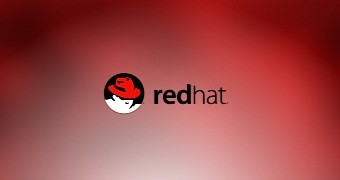Red Hat announced the release and general availability of the seventh and last maintenance update to the Red Hat Enterprise Linux 7 operating system series, which was released five years ago on June 10, 2014.
Red Hat Enterprise Linux 7.7 is here nine months after the release of Red Hat Enterprise Linux 7.6 as the last maintenance and security update in the series to add one more layer of stability and reliability to the Red Hat Enterprise Linux 7 operating system series, which Red Hat promises to keep alive for a few more years, but without releasing additional maintenance updates. As such, Red Hat Enterprise Linux 7.7 will be supported for two years, until August 30th, 2021.
"As the hybrid cloud takes hold as a preferred production environment for mission-critical workloads, maintaining stability and consistency across all IT footprints is key. With Red Hat Enterprise Linux 7.7, we show our continued commitment to the 10-year Red Hat Enterprise Linux lifecycle while also introducing key new features, like image builder and Red Hat Insights, to help IT organizations get the most from their existing Red Hat Enterprise Linux 7 investments,” said Stefanie Chiras, vice president and general manager, Red Hat Enterprise Linux, Red Hat.
Here’s what new in Red Hat Enterprise Linux 7.7
Highlights of the Red Hat Enterprise Linux 7.7 release include new features that promise to help operations teams maintain and further control their workloads across environments, such as Red Hat Insights for detecting, analyzing, and addressing a wide range of security problems, as well as configuration issues that may lead to downtime, and improvements to the network stack by offloading NFVs (Network Functions Virtualization) and virtual switching to network controller hardware.
Furthermore, Red Hat Enterprise Linux 7.7 introduces full support for Red Hat’s image builder to help IT teams more easily and quickly build cloud images for popular cloud hosting services like AWS, Azure, and GCE. On top of that, Red Hat Enterprise Linux 7.7 now fully supports Red Hat’s distributed container toolkit, which includes tools like buildah, podman, and skopeo, helping developers build, run, and manage containerized apps across several cloud environments while keeping a smaller and more manageable footprint.
Last but not least, Red Hat Enterprise Linux 7.7 adds live kernel patching support, which lets IT teams apply Linux kernel security patches without compromising the downtime of their infrastructure. Live kernel patching applies the latest security updates without the need to reboot. Red Hat Enterprise Linux 7.7 is now available for all existing Red Hat Enterprise Linux subscribers and can be downloaded via Red Hat’s Customer Portal.

 14 DAY TRIAL //
14 DAY TRIAL //